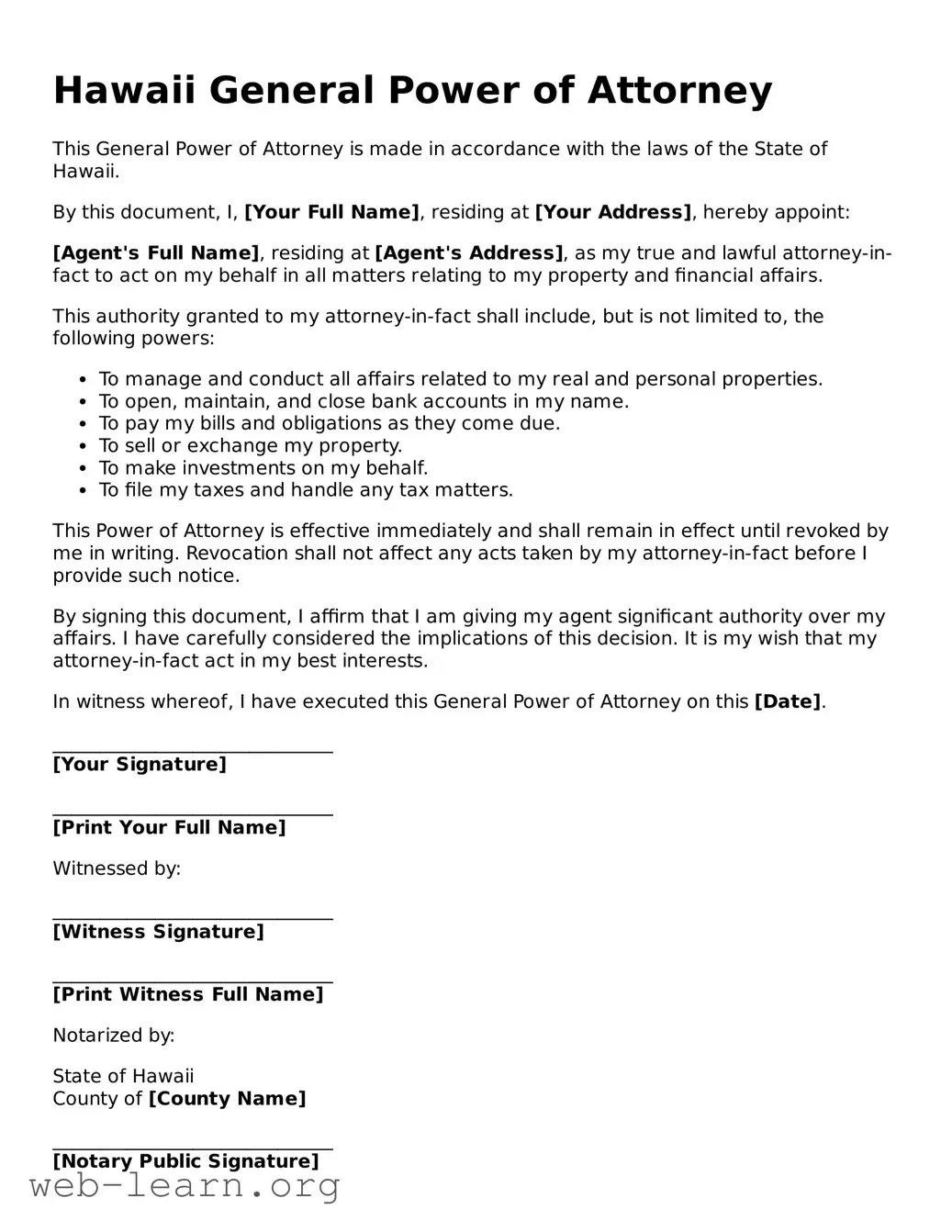Hawaii General Power of Attorney
This General Power of Attorney is made in accordance with the laws of the State of Hawaii.
By this document, I, [Your Full Name], residing at [Your Address], hereby appoint:
[Agent's Full Name], residing at [Agent's Address], as my true and lawful attorney-in-fact to act on my behalf in all matters relating to my property and financial affairs.
This authority granted to my attorney-in-fact shall include, but is not limited to, the following powers:
- To manage and conduct all affairs related to my real and personal properties.
- To open, maintain, and close bank accounts in my name.
- To pay my bills and obligations as they come due.
- To sell or exchange my property.
- To make investments on my behalf.
- To file my taxes and handle any tax matters.
This Power of Attorney is effective immediately and shall remain in effect until revoked by me in writing. Revocation shall not affect any acts taken by my attorney-in-fact before I provide such notice.
By signing this document, I affirm that I am giving my agent significant authority over my affairs. I have carefully considered the implications of this decision. It is my wish that my attorney-in-fact act in my best interests.
In witness whereof, I have executed this General Power of Attorney on this [Date].
______________________________
[Your Signature]
______________________________
[Print Your Full Name]
Witnessed by:
______________________________
[Witness Signature]
______________________________
[Print Witness Full Name]
Notarized by:
State of Hawaii
County of [County Name]
______________________________
[Notary Public Signature]
______________________________
[Print Notary Public Name]
My commission expires: [Expiration Date]
